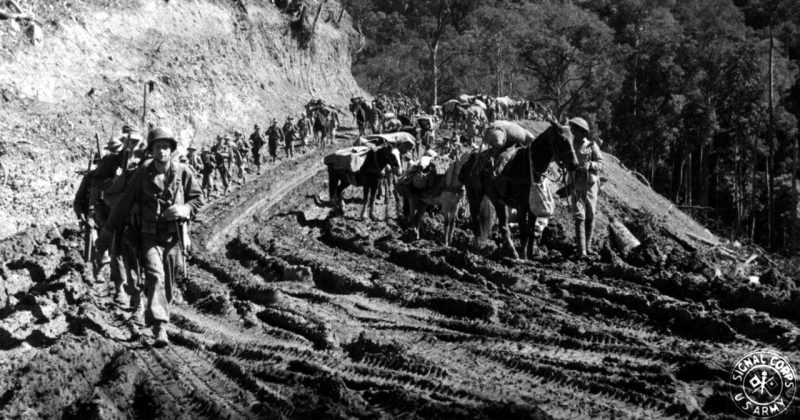Second World War veteran Gerald Keller, in his wheelchair swathed in a blanket adorned with the American flag, got a standing ovation when he was presented with a pin recognizing his service in the war.
The Fellowship Hall at Calvary Chapel Pacific Coast in Westminster, CA., was filled with family, friends, fellow veterans and his favorite dishes, tacos, for his ‘celebration of life’ party on March 7, a final request from the 94-year-old Garden Grove resident.
Keller, now in the latter stage of renal disease, ran a supply line far behind enemy lines for Merrill’s Marauders, a special operations Army unit that raided the Japanese.
At Keller’s request, a couple of his friends, who also served in WWII, were honored with him at the ceremony. Only one was able to attend.
Ensuring Keller and other aging veterans know their sacrifices will not be forgotten is one of the methods the National Hospice and Palliative Care Organization’s We Honor Veterans program addressed the distinct needs military men and women might have as they approach their remaining days.
Emotional and mental scars borne in silence for decades can painfully rise to the surface as veterans enter hospice, making life’s conclusion even more overpowering, said Michelle Wulfestieg, executive director of the Southern California Hospice Foundation, which arranged the party.
Veterans are very unemotional. They do not wish to show when they are in pain. They erect this front, which makes it hard at times to provide the comfort needed, explained Pam Punzalan, administrator of Companion Hospice Orange.
Founded in 2010 in collaboration with the Department of Veteran Affairs, the We Honor Veterans program arranges training for hospice caretakers on these novel challenges and supplies services, such as Keller’s party, that makes the end of life as contended as possible for veterans.
Jerry Pugh, leader of the Calvary Chapel Pacific Coast’s At Ease Ministry, said he has seen all types of veterans over the years, but Keller is a classic example of what ‘the greatest generation’ looks like.
They have seen it all, and they would not discuss with you about what they experienced, Pugh said. But they realize what you have experienced, and they know how to console you, The Orange Country Register reported.
The party for Keller was not only a celebration of his life, but it was also the beginning of a farewell. Pugh said he will miss Keller’s tender presence, although he has slowed down of late, but he still has a method of making everyone feel welcome without saying a word, Pugh said.
These veterans gave everything to provide us with what we have, and you cannot regret that, Pugh said. He would never trade all the time he has had to spend with that man. He is an extraordinary man.
